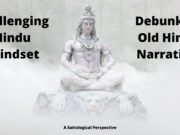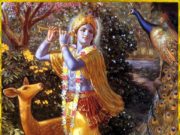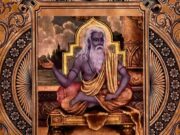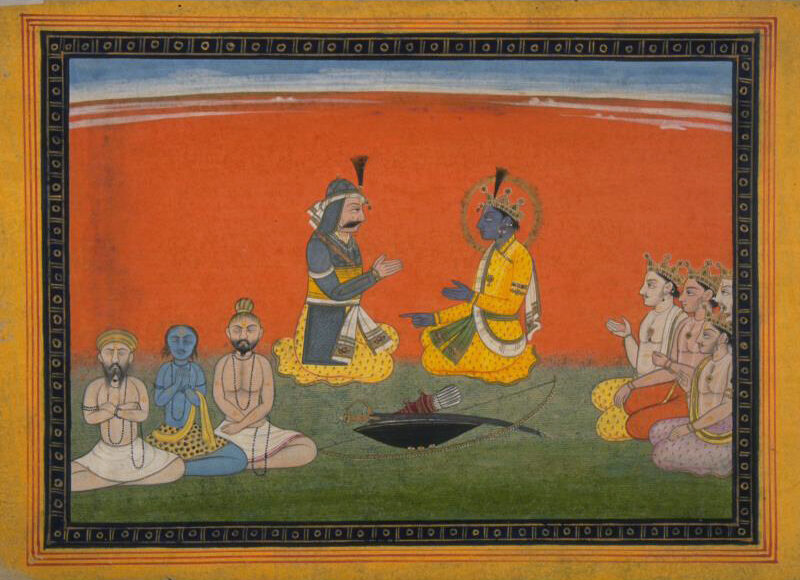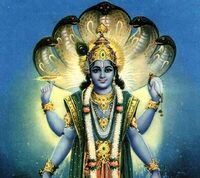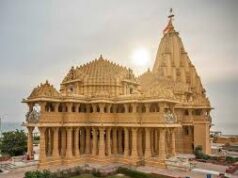Ashwatthama was the son of Dronacharya, who committed an unforgivable act of killing sons of Pandavas in sleep. This incident is very instructive to understand how dharma works.
According to Vedas, an aggressor must be killed. This is an axiomatic statement which is also bound by other codes of Dharma.
Ashwatthama knew the art of throwing the Brahmastra but he did not know the way to retract it. Arjun knew the art of throwing it as well as retracting it. Arjun used his skills & knowledge of Brahmastra to retract Ashwatthama’s Brahmastra through his own Brahmastra. When the rays of the two brahmastras combined, a great circle of fire, like the disc of the sun, covered all outer space and the whole firmament of planets. All the population of the three worlds was scorched by the combined heat of the weapons. Thus seeing the disturbance of the general populace and the imminent destruction of the planets, Arjun at once retracted both brahmastra weapons, as Bhagavan Krishna desired. Then Arjun arrested Ashwatthama and wanted him to be brought to his military camp as a prisoner.
Then Bhagavan Krishna immediately asked Arjun to kill him because he had committed an unforgivable activity of killing Pandavas sons while they were sleeping.
Bhagavan Krishna was testing the Dharmic wisdom of Arjun.
The reasons given by Bhagavan Krishna were:
- A person who knows Dharma does not kill an enemy who is careless, intoxicated, insane, asleep, afraid or devoid of his chariot. Nor does he kill a boy, a woman, a foolish creature or a surrendered soul.
- A cruel and wretched person who maintains his existence at the cost of others’ lives deserves to be killed for his own well-being, otherwise he will go down by his own actions.
- Furthermore, I have personally heard your promise to Draupadi that you would bring forth the head of the killer of her sons.
- This man is an assassin and murderer of your own family members. Not only that, but he has also dissatisfied his master, Duryodhana who never approved of killing the sons of Pandavas.
Now began a great debate on Dharma between Draupadi, Pandavas and Bhagavan Krishna Himself. Arjun brought Ashwatthama to his military camp to hand him over to the justice of Draupadi. Seeing Ashwatthama bound up in ropes and brought before her as an animal, she asked Arjun, ‘Release him for he is the son of a Brahmana who is also our Guru. Because of him, his mother did not commit Sati. It was by Dronacharya’s mercy that you obtained all divine weapons. I do not want the wife of Dronacharya to cry like me. If a Kshattriya offends a Brahmana, then, the family of that Kshattriya gets destroyed and grieves for many generations.’ Yudhishthir, Arjun, Nakul, Satyaki, Sahadeva and Bhagavan Krishna Himself supported the words of Draupadi. Bhima, however, angrily disagreed with them and recommended killing this culprit, who had murdered sleeping children for no purpose and for neither his nor his master’s interest.This makes it clear that Bhagavan Krishna was earlier testing Arjun in trying circumstances. Bhagavan Krishna said, ‘A friend of a brahmana is not to be killed, but if he is an aggressor he must be killed. All these rulings are in the Vedas, and you should act accordingly. You have to fulfill your promise to your wife, and you must also act to the satisfaction of Bhim and Me.’ Arjun was very well trained in Dharma and he decided to sever both hair and jewel from the head of Ashvatthama. He also unbound Ashwatthama and drove him out of his military camp. Ashwatthama was denied a proper residence, wealth and also bodily luster because of committing a heinous act of killing children in sleep.
Interesting thing to note was that he was not given a capital punishment because he was a relative of a Brahmana.
Bhagavan Krishna was visibly pleased with the decision of Arjun. There are very important observations in this entire episode. The Brahmanical order of society was respected even in the most trying circumstances by Kshatriyas. Brahmanas are naturally the protector of even Kshatriyas because they are dear to Bhagavan Krishna Himself.
Book Links:
Yudhishthir, The Pran of Dharma


